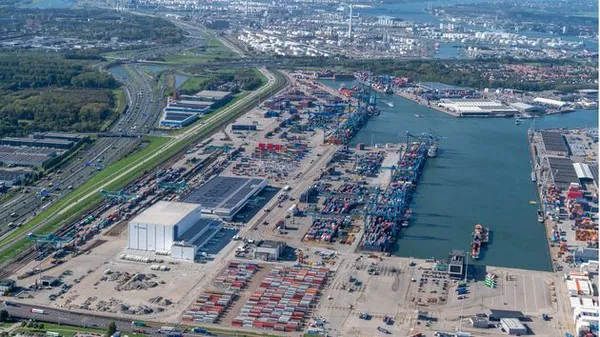"We have shown that we are customer-oriented and flexible. And I am convinced that these core values will only become more important in the future. But if we want to maintain and increase our market share, we have to get more and more creative. Our ambition is to be the best in class shortsea terminal in Europe within a few years," reveals CCO Jeroen Zwijnenburg of Rotterdam Short Sea Terminals (RST).

Rotterdam's Waal-Eemhaven is home to Europe's largest shortsea cluster, the City-terminal. Combined with the high concentration of cooperating (shortsea) terminals and shortsea service providers, the cluster guarantees fast and reliable transport and transhipment of goods within Europe. Rotterdam also offers the largest network of feeder services connecting to international liner services and a direct connection to deep-sea liner connections with more than 140 international ports. Indispensable in this cluster is Rotterdam Shortsea Terminals, Europe's largest hub for dedicated shortsea shipping, with a capacity of over one million TEU per year.
The terminal handles containers for around 20 shipping companies, including Samskip, BG Freight, Containerships, Eucon and Unifeeder. "Every week we connect around seventy ports in 18 European countries. The frequency is high; on average there are 50 to 55 departures," Jeroen Zwijnenburg, CCO at RST, explains.
Russia sanctions, as a result of the war in Ukraine, are also having a serious impact. Whereas St Petersburg was always a very big destination, the number of containers decreased by 75,000 to 100,000.
Besides its continuous drive for innovation and optimisation, RST obviously also focuses on sustainability. Zwijnenburg: "Sustainability is inextricably linked to our long-term growth. We try to systematically embed sustainability in our operations." In doing so, RST strives to work closely with customers, who are increasingly transporting loads by barge instead of truck.
Corporate Social Responsibility is also a strategic focus for RST. "As Europe's largest storage and transhipment terminal for shortsea vessels, it is our duty to further increase our role in society, and the impact we can make. We take responsibility for the effects of our activities on people and the environment. These themes have already been important in recent years, and we have also taken the necessary steps," Zwijnenburg indicates. "Our ambition is to be the best in class shortsea terminal in Europe within a few years."
The energy goals for 2025 are equally clear: more than 75% green energy, at least 5 operational diesel vehicles replaced by clean, electrically powered alternatives, at least three quarters of all transport and lease cars electrically powered and more charging stations. RST has also expressed its ambition to actively participate in hydrogen initiatives for future equipment.
For more information:
Port of Rotterdam
Tel: +31 (0)10 252 10 10
www.portofrotterdam.com
